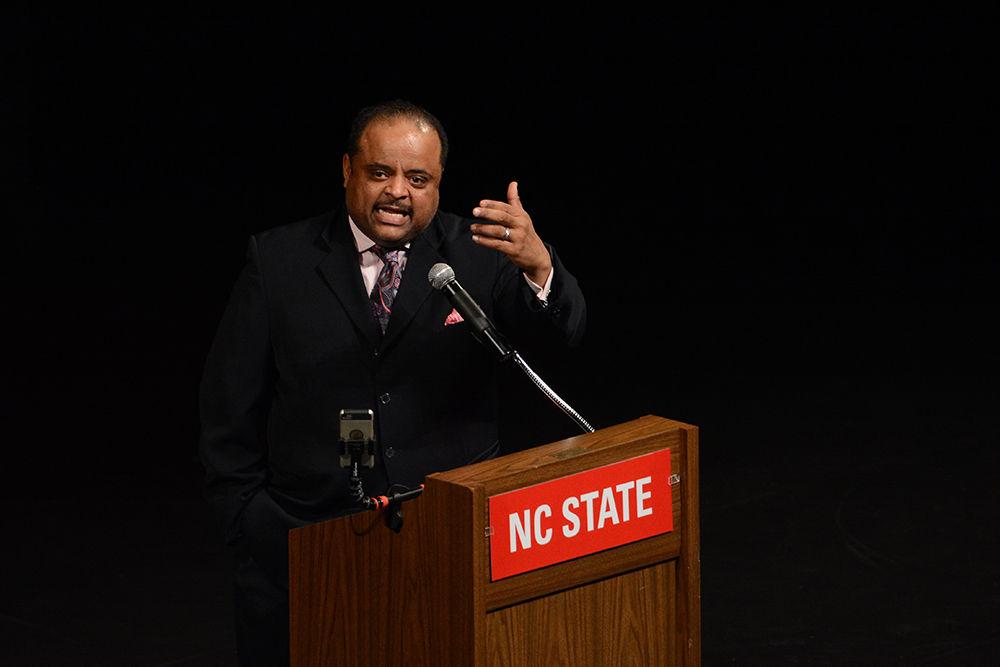The 2017 Martin Luther King, Jr. campus commemoration speech was held on Monday in Talley Student Union. The commemoration featured keynote speaker Roland Martin, host of TV One’s “NewsOne Now,” the first daily morning news program to focus on news, politics, sports and culture from an explicitly African-American perspective. Martin used his speech to highlight the need for what he called “21st century revolutionaries.”
“We have no problem calling people such as Washington, Hamilton, Jefferson and Adams a revolutionary,” Martin said. “If you look up the word revolutionary, you will see that it applies to people like Dr. King.”
Martin took issue with the way that King is often discussed today.
“Dr. King has turned into America’s mascot,” Martin said. “In fact, Dr. King was one of the most radical revolutionaries America has ever known.”
Martin said he is disturbed by how passively that Martin Luther King Jr. Day is celebrated and described a sense of apathy and ignorance that he has encountered on the subject.
“We have allowed ourselves to read a couple of speeches and a few quotes and act like you know Dr. King,” Martin said. “No, you don’t.”
Martin then went on to describe a history of racism and inequality in America.
“To understand where we are in America today, you have to understand history instead of his story,” Martin said.
Martin went throughout history, starting from 1619, when the first slaves arrived in America. He highlighted certain points, such as the Great Compromise of 1877, which allowed Rutherford B. Hayes to become president in exchange for federal troops to vacate the southern states, thereby ending reconstruction and, as Martin put it, “starting Jim Crow laws.”
His history culminated with stories of the civil rights movement and those who led it.
“[Dr. King and others] did not want their children growing up in the same America,” Martin said. “Dr. King wanted a black child to come out of the womb and to have the same rights in America as a white child.”
Martin finished his speech by drawing comparisons from history into today’s world, such as North Carolina’s recent voter ID laws.
“[The voter ID laws] were designed to keep blacks from voting in this state,” Martin said. “I have a problem with an America that makes it harder for folks to vote, but easier for folks to buy a gun.”
In order to erase what he called a “generational curse,” Martin called upon the crowd.
“Forty or 50 years from now, they will not be talking about Dr. King,” Martin said. “They will be talking about you.”
Sean Farley, a freshman studying environmental engineering, was one of those in the crowd.
“[The speech] was absolutely amazing, incredible,” Farley said. “I expected to come listen to the same speech that is repeated over and over and left ignited to fight for freedom.”
Farley drew upon the speaker’s call to action.
“It doesn’t matter what one says, it matters what one does,” Farley said. “The greatest people in the world don’t get there by words, they get there by actions, and those actions must be educated.”
Martin was adamant in his call to action.
“As you sit here today, you have to make the decision whether to sit on the sidelines and watch this happen to America or get in the game and let your talents, power and energy to become radical revolutionaries and change America to form a more perfect union,” Martin said. “If [something] is wrong, you should be on the side who is trying to change it.”








